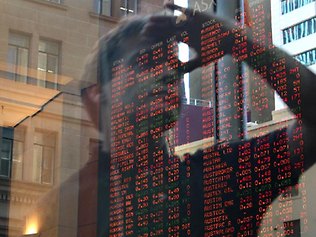
What does the CBA result tell us about the market?
Interesting to see the share price reaction to the CBA result today. As we write, CBA shares are off slightly, following yesterday’s announcement of CBA’s record FY13 profit.
This is a little surprising, as the result was better than analysts had been expecting. There have been the usual comments about quality and composition, but it seems hard to escape the conclusion that the result was fundamentally better than expected.
The outlook comments also seemed to present no particular issues. In summary, CBA currently expects that 2014 is going to feel “very much like the year that we just went through”. Doesn’t seem too ominous.
The only thing that seems to be wrong with the result is that CBA did not announce any special dividend.
From our point of view, the absence of a special dividend makes not a jot of difference to the valuation of CBA, while the better-than-expected profit has a definite positive effect. So where do we find an explanation for the market pushing CBA shares down ?
We can see two possibilities: firstly, with the formal result on the table there may be some acceptance that, at the current levels, CBA is expensive. We would agree with this, but wonder why today would be the day to acknowledge it.
The second possibility is that the market is not having enough regard to value in pricing CBA shares, but rather is focused on the income that CBA shares deliver. Under this logic, less dividend = less attractive.
Under either view, this does not feel like a good time for long term value investors to be accumulating CBA shares, regardless of the profit result.
The reasoning behind CBA’s decision not to issue a special dividend according to Ian Narev (CEO) was due to the bank needing to maintain a conservative setting amid ongoing certainty about new global banking regulations and the threat the economy could turn downward. (AFR 15-8-13).
Taking into account the continued concern over China’s future growth and the associated effect on the Australian resources sector, in addition to Australia’s own fiscal policies changing by the hour on the lead up to the election and I believe it was a responsible and strategic decision made by a financially conservative business leader, perhaps one which should be viewed as an example to other Australian blue chip financial companies.
I would much rather see Australia’s larger financial institutions hold increased cash holdings rather than passing on profits through abnormally large dividends when assessing at present both the local and global economic situation. Note the term “abnormal”.
Why the drop in share price?
Traditionally the big four banks have been staples in income generating portfolios and I see the drop in CBA’s share price as a sign that investors are finally coming to the realisation that the market may indeed be overvalued and as a result those high, fully-franked dividend cheques may be slowing down – at least until we have a Government capable of providing business with stable policies on which to build future plans for growth. CBA pays circa $3 billion in tax every year and with no clear direction on what will happen in September I think we’ll continue to see most businesses holding onto profits until the economy settles.
“No direction on what will happen in September”. Did you just say that Alexander?
Mr Montgomery
I am currently campaigning in my local electorate with the Young Liberals and have spoken to countless business owners. The vast majority are stating that due to the uncertainty in September (which since the time of my original comment has become slightly more certain :-) ) they are finding it difficult to adequately forecast expected taxation due to the volatility in fiscal policy as a result of continued “back of coaster” policies being introduced on a daily basis. I don’t want to turn this into a political debate however it cannot be denied that uncertainty in government and associated policy would make it difficult for companies (both small and large) to predict and forecast their actions over the next financial year.
Thanks for clarifying. Often what people say and what people do are two very different things…
CBA
” Buy on rumour, Sell on fact” .
Cheers